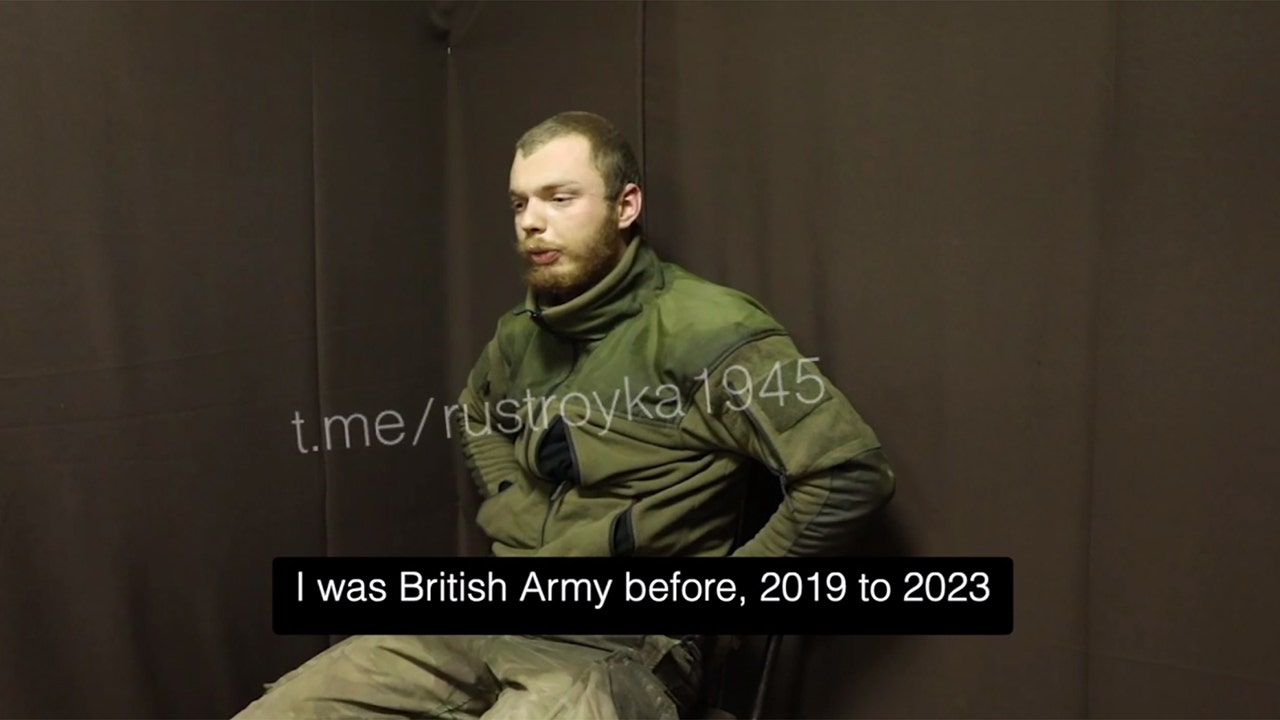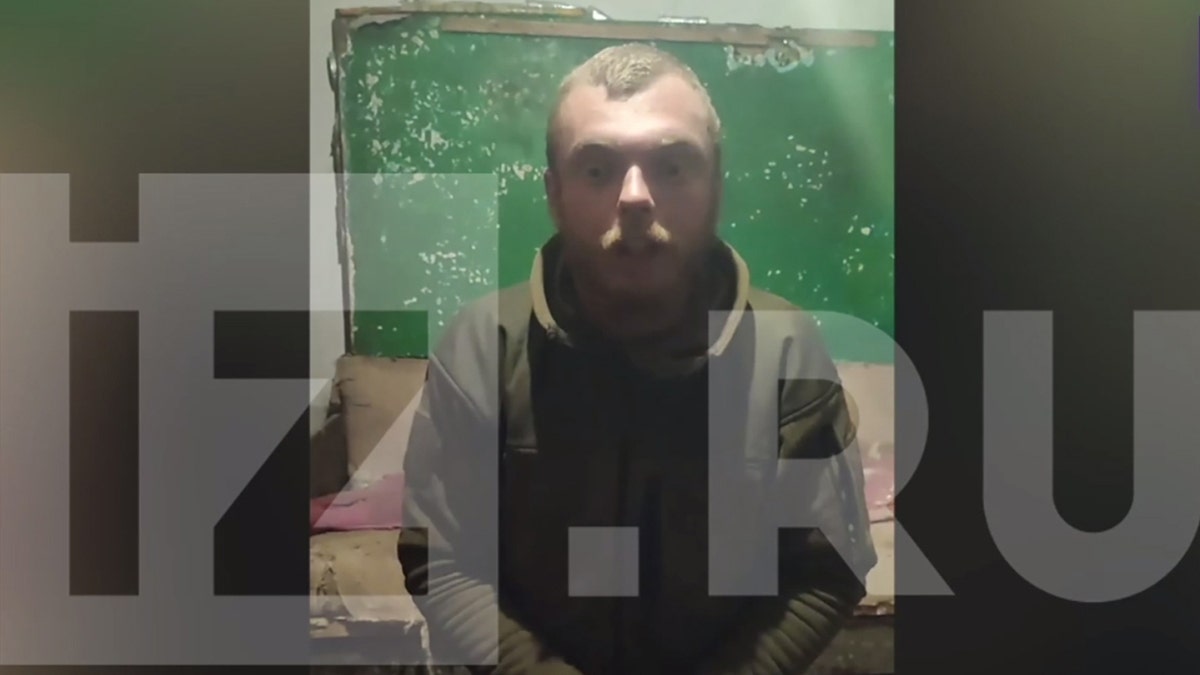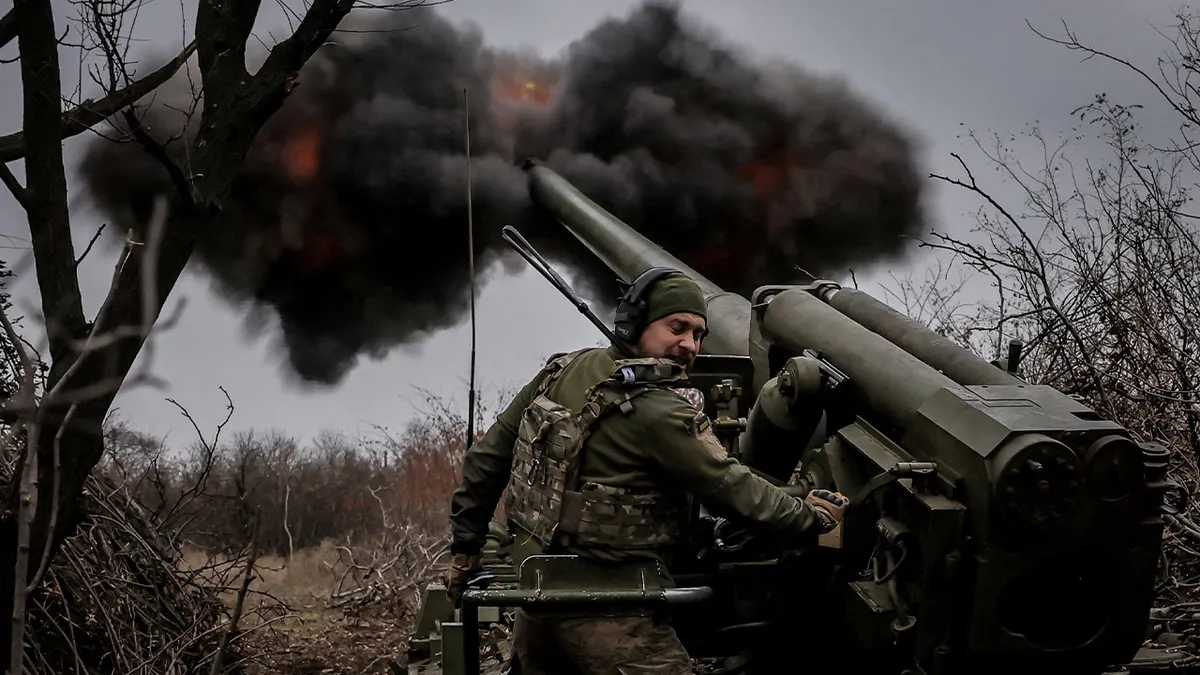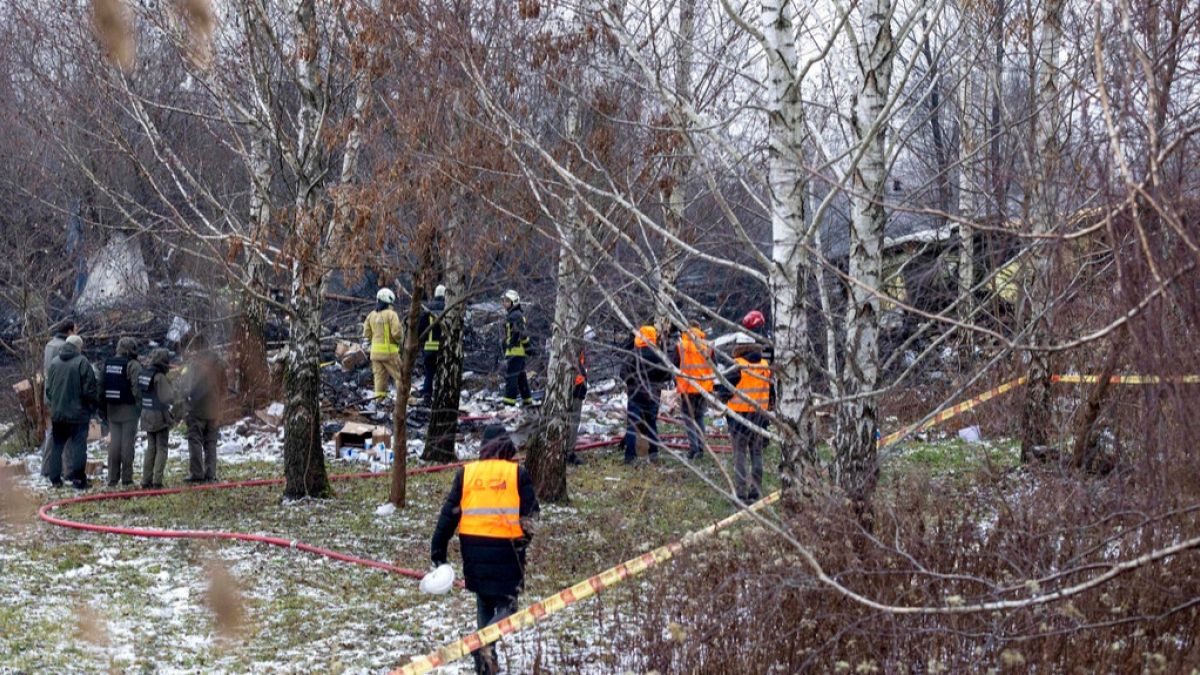World
Russia detains ex-separatist commander Igor Girkin

Russian investigators have detained prominent Russian nationalist Igor Girkin, who had publicly accused President Vladimir Putin and the army’s top brass of not prosecuting the war in Ukraine harshly or effectively enough.
Friday’s move, reported by his wife, his lawyer and the RBC news outlet, suggested the authorities have wearied of his criticism of what they call Russia’s “special military operation”.
The arrest followed an abortive mutiny last month led by another outspoken critic, Yevgeny Prigozhin, boss of the Wagner mercenary force, who is still free, but has sharply curtailed his own verbal attacks.
Girkin, also known as Igor Strelkov, helped Russia annex Crimea from Ukraine in 2014 and then organise pro-Russian militias who took control of part of eastern Ukraine from Kyiv.
The 52-year-old former military commander of the self-declared Donetsk People’s Republic, was also handed a life sentence in absentia by a Dutch court in 2022 for his alleged role in the shooting down of Malaysia Airlines flight MH17 over eastern Ukraine in 2014, with the loss of 298 passengers and crew.
The former Federal Security Service (FSB) officer had been regarded by many as untouchable due to his background and ties to the authorities, but had become more outspoken in recent months.
Girkin announced in May that he and others had set up the “Club of Angry Patriots”, to enter politics to save Russia from what he said was the danger of turmoil due to military failures in Ukraine.
Asked at the time if he was naive to think he could launch a political movement without the assent of the Kremlin, he said, “I hope you would not call me a naive person.”
‘Someone capable’
In one of his most outspoken tirades on July 18, in a post on his official Telegram channel, read by about 800,000 people, Girkin peppered Putin with personal insults and urged him to transfer power “to someone truly capable and responsible”.
“The country will not survive another six years of this cowardly mediocrity in power,” he wrote.
In a message posted on Girkin’s official Telegram account, his wife, Miroslava Reginskaya, said, “Today, at about 11:30 am [08:30 GMT], representatives of the Investigative Committee came to our house. I was not at home. Soon, according to the concierge, they took my husband out by his arms and in an unknown direction.”
She said friends had told her Girkin had been charged with extremism.
“I do not know anything about my husband’s whereabouts, he has not contacted me,” she said.
“He has been detained by law enforcement,” lawyer Alexander Molokhov told the AFP news agency.
Molokhov said he had not seen any documents relating to Girkin’s detention yet and was now working to secure access to his client.
There was no immediate comment from the authorities.
RBC, citing two unnamed law enforcement sources, said Girkin’s Moscow home was being searched and that he had been detained over a complaint against him made by a former Wagner employee.
Tatiana Stanovaya, founder of the R.Politik analysis firm, said the men who run Russia’s law enforcement and power ministries had long wanted to arrest Girkin.
“Strelkov [Girkin] had overstepped all conceivable boundaries a long time ago,” she said.
“This is a direct outcome of Prigozhin’s mutiny: The army’s command now wields greater political leverage to quash its opponents in the public sphere.”
Stanovaya said Girkin’s detention was a signal that any of the bitterest critics of Moscow’s approach to the war could face prosecution.
Russia is set to hold a presidential election next year.
Criticism of Russia’s assault on Ukraine has been outlawed, and all key liberal opposition figures are either behind bars or in exile.

World
Russian forces capture former British soldier fighting for Ukraine in Kursk: report

Russian forces captured a former British Army soldier who was fighting with Ukrainian troops in the Kursk region, according to reports on Monday.
In a video, the prisoner of war was sitting on a bench with his hand restrained as he identified himself as 22-year-old James Scott Rhys Anderson.
Russia’s Tass news agency reported on Monday that Russian security officials confirmed a British mercenary had been captured in the Kursk area.
“I was in the British Army before, from 2019 to 2023, 22 Signal Regiment,” Anderson told Russian authorities while being recorded. “Just a private. I was a signalman. One Signal Brigade, 22 Signal Regiment, 252 Squadron.”
RUSSIA TRICKS YEMENI MEN TO FIGHT IN UKRAINE UNDER HOUTHI SCHEME
Former British Army soldier James Scott Rhys Anderson was reportedly captured by Russian forces in the Kursk region while fighting for Ukraine. (Credit: East2West)
He expressed regret for joining Ukraine in its fight against Russia, explaining he had nearly lost everything.
When he left the military, he got fired from his job and applied on the International Legion (of Ukraine) webpage.
“I had just lost everything. I just lost my job. My dad was away in prison. I see it on the TV,” Anderson said while shaking his head. “It was a stupid idea.”
RUSSIA IS SUPPLYING HOUTHIS WITH SATELLITE DATA TO ATTACK SHIPS IN THE RED SEA: REPORT

Former British Army soldier James Scott Rhys Anderson was reportedly captured by Russian forces in the Kursk region while fighting for Ukraine. (Credit: East2West)
The International Legion for Defense of Ukraine was created at the request of Ukrainian President Volodymyr Zelenskyy after Russia’s full-scale invasion of the country in February 2022.
The Associated Press reported that the Legion is a unit of Ukraine’s ground forces that mainly consists of foreign volunteers.
Anderson reportedly served as an instructor for Ukrainian troops and was deployed to the Kursk region against his will.
In the video, he said his commander took his stuff — passport, phone and other items — and ordered him to go to the Kursk region.
UKRAINE TO ANALYZE FRAGMENTS OF MISSILE FIRED BY RUSSIA CAPABLE OF CARRYING NUCLEAR WARHEADS

FILE PHOTO: Ukrainian servicemen hide from shelling, amid Russia’s attack on Ukraine, near the Russian border in Sumy region, Ukraine August 13, 2024. (REUTERS/Viacheslav Ratynskyi/File Photo)
“I don’t want to be here,” Anderson said.
The AP could not independently verify the report, but if confirmed, it said this could be one of the first publicly known cases of a Western national getting captured on Russian soil while fighting for Ukraine.
The U.K. Embassy in Moscow told the wire officials were “supporting the family of a British man following reports of his detention” though no other details were provided.
Anderson’s father, Scott Anderson, told Britain’s Daily Mail that his son’s Ukrainian commander informed him the young man had been captured.

A serviceman of 24th Mechanized brigade named after King Danylo of the Ukrainian Armed Forces fires a 2s5 “Hyacinth-s” self-propelled howitzer towards Russian troops at a front line, amid Russia’s attack on Ukraine, near the town of Chasiv Yar in Donetsk region, Ukraine November 18, 2024. (Oleg Petrasiuk/Press Service of the 24th King Danylo Separate Mechanized Brigade of the Ukrainian Armed Forces/Handout via REUTERS )
The senior Anderson also said his son served in the British military for four years, worked as a police custody officer, and then went to Ukraine to fight. He told the paper he tried to convince his son not to join the Ukrainian military, and now fears for his safety.
“I’m hoping he’ll be used as a bargaining chip, but my son told me they torture their prisoners, and I’m so frightened he’ll be tortured,” he told Britain’s Daily Mail.
While being questioned, the younger Anderson talked about how he got to Ukraine from Britain, saying he flew to Krakow, Poland from London Luton. From there, he took a bus to Medyka in Poland, which is on the Ukrainian border.
Anderson’s capture comes amid reports Russia is recruiting hundreds of Yemeni men to fight in its war in Ukraine by luring them to Russia under false pretenses in coordination with the Houthi terrorist network, as reported by the Financial Times.
A senior Ukrainian defense official told Fox News that Moscow is trying to involve as many foreign mercenaries as possible in its war against Ukraine, whether from its allies or proxies in poor, impoverished countries.
The Ukrainian Ministry of Defense similarly confirmed the report to Fox News and said, “Russi[a] has escalated this war twice recently. First, when they brought North Korean fighters, and second, when they used [a] ballistic missile in Ukraine.”
Fox News Digital’s Caitlin McFall and Nana Sajaia, as well as The Associated Press contributed to this report.
World
German FM questions if DHL plane crash was 'hybrid incident'

A cargo plane crashed into a house on its approach to Lithuania’s Vilnius Airport on Monday morning, killing one crew member and injuring others.
Authorities search for answers as they continue their investigation after a Boeing 737 cargo plane crashed into a house near Vilnius Airport in Lithuania on Monday morning.
The DHL cargo plane operated by Swiftair, departing from Leipzig in Germany, crashed while approaching the airport in Lithuania’s capital. A Spanish crew member was killed, and three other people on board were rushed to the hospital, one of them is in critical condition. No one on the ground was reportedly injured.
Speaking on the sidelines of the G7 Foreign Ministers’ meeting in Italy, Germany’s Foreign Minister Annalena Baerbock raised the question of whether the plane crash was a hybrid attack.
“We have to say at this point that we and our Lithuanian partners must now seriously ask ourselves whether this was an accident or, after last week, another hybrid incident. That shows what volatile times we are living in in the middle of Europe,” she said.
Lithuanian officials said one line of inquiry would examine Russian involvement but stressed that no evidence exists yet.
Last month, Western security officials warned that Russian military intelligence may be carrying out sabotage acts against nations in retaliation for their support to Ukraine.
Darius Jauniškis, the chief of Lithuania’s Intelligence, mirrored these concerns and said terrorism cannot be ruled out: “The State Security Department, together with the Department of Operational Services, have warned that these things are possible in the future. We see Russia becoming more aggressive.”
He added that however for now, “we really cannot make any attributions or point fingers at anyone, because there is no information about it.”
Lithuanian Defence Minister Laurynas Kasčiūnas said, “According to the information I have at the moment, I can say that there are no confirming facts that this was some kind of sabotage or terrorist incident. But the investigation will answer all the questions.”
The General Commissioner of the Lithuanian Police, Arūnas Paulauskas, chose not to speculate and said the cause of the crash might be the result of a technical failure or a human error. “But we are not aviation experts here to discuss this matter in such detail,” he added.
Paulauskas confirmed that investigators have visited the hospital, and will talk with the aircraft’s police and other aviation officials when they get the chance.
“As far as I know, the investigators have gone to the hospital. If there is an opportunity to communicate with the aircraft’s pilots to determine the initial causes, as well as with officials responsible for civil aviation.”
Experts say communication with Air Traffic Controller seemed ‘normal’
Several aviation experts who spoke to local media said they noticed nothing out of the ordinary when they listened to the communication between the crew and the Air Traffic Controller (ATC) that was shared online.
Aviation expert Vidas Kaupelis said it seemed there was “routine communication between the air traffic controller and the pilot”.
“They didn’t declare any emergency situation, they didn’t speak of any technical failures or fires,” the expert added.
The Chief of the Aircraft Accident and Incident Investigation under Ministry of Justice, Laurynas Naujokaitis, said German and Spanish investigators are due to arrive in Lithuania to assist local authorities with the probe.
“Currently we have an answer that a German safety probe institution is sending four investigators, Spain safety probe institution is sending two,” he said. “We are still gathering information regarding technical maintenance, meteorological, navigation and qualification information.”
World
Charles Oakley, MSG Still Sparring as Judge Weighs Dolan Testimony

A federal judge in New York last Thursday issued a mixed set of rulings in retired New York Knicks star Charles Oakley’s long-lasting litigation against Madison Square Garden Networks over Oakley’s removal from his seat at a Knicks game in February 2017. The rulings indicate that unless the parties reach a settlement, a dispute that began shortly after Donald Trump became the 45th president could last well into Trump’s term as the 47th president.
U.S. District Judge Richard J. Sullivan sided with MSG on its demand that MSG chairman James Dolan face deposition only after MSG personnel are deposed. Sullivan agreed with MSG that having Dolan go last would help to “narrow the scope” of Dolan’s deposition. The judge reasoned that MSG employees “who were directly involved in Oakley’s removal and thus have the knowledge most relevant to determining whether unreasonable force was used against Oakley” should go first.
The fact that MSG employees haven’t yet been deposed is partly a reflection of the litigation’s turbulent path. The case has been dismissed twice at the trial level but reinstated twice by the U.S. Court of Appeals for the Second Circuit, meaning it’s now in round three at the Southern District of New York. There are also disputed questions about key testimony and evidence that could further bog down the case. In the current version of the litigation, Oakley’s civil case is related to assault and battery claims stemming from his removal.
While Sullivan agreed Dolan would face deposition after MSG personnel, he sided against MSG’s request that Dolan not face deposition at all.
The judge explained that Oakley’s assault and battery claims “ultimately boil down to two considerations.” The first is the amount of force MSG staff used to remove Oakley from the Garden and, second, whether that force “was objectively reasonable under the circumstances.”
Oakley believes Dolan instructed staff to remove him. Sullivan reasoned that Dolan’s potential testimony is relevant in that he would have to answer under oath about whether he instructed—by words and/or “hand gestures”—the security guards to push Oakley and use excessive force. If Dolan gave an instruction to use force, his testimony, Sullivan wrote, “would support the reasonable inference that the guards followed Dolan’s instructions and would therefore make it more probable that the guards did in fact push him.”
Sullivan further observed that Dolan’s testimony is relevant to a key factual question: Whether the security guards “only resorted to force after Oakley physically escalated the situation.” Oakley’s case would be hampered by a finding that he instigated the altercation, since, Sullivan explained, “it might have been reasonable for the security guards to use greater force if Oakley was behaving aggressively.”
The judge was similarly unpersuaded that Dolan ought to be exempt from deposition on account of the apex-witness doctrine. As Sportico detailed in September when Sullivan rejected MSG’s earlier attempt to invoke this doctrine, high-ranking executives are sometimes exempt from depositions since they lack personal knowledge of key facts. In his latest ruling, Sullivan said Dolan “is not the prototypical apex witness who sits in the knowledge or involvement in the underlying conduct.”
Instead, Dolan literally “had a courtside seat to the action” and is accused of being involved in the incident. “The apex doctrine is plainly inapplicable here,” Sullivan insisted.
Sullivan also disagreed with MSG that Oakley is merely trying to depose Dolan to harass him. MSG cites text messages sent to Oakley from people urging the former player to go after Dolan, with one text saying Oakley should “sue the [expletive] out of Dolan.” Another text encouraged Oakley to use the discovery process to inflict a “public relations, social media, [and] social responsibility toll.” With negative attention stemming from the case, MSG might be more inclined to cut a deal. Sullivan didn’t find this evidence indicative of an intent by Oakley to harass, as there’s no evidence Oakley responded or otherwise endorsed the texts.
“We are pleased that the Court denied James Dolan’s latest attempt to avoid being deposed in this case,” Wigdor Law partner Valdi Licul, who is one of Oakley’s attorneys, told Sportico in a statement.
In September, the two sides told Sullivan their “present best estimate” was that a trial would take a couple of weeks. The judge at the time indicated there would be a post-discovery conference on March 4, 2025, though the parties’ recent disagreement about discovery suggests the case has a long way to go.
(In the next-to-last paragraph, Wigdor Law amended its original statement, replacing “to be excused from deposition in this case” to read “to avoid being deposed in this case.”)
-

 Business1 week ago
Business1 week agoColumn: Molly White's message for journalists going freelance — be ready for the pitfalls
-

 Science6 days ago
Science6 days agoTrump nominates Dr. Oz to head Medicare and Medicaid and help take on 'illness industrial complex'
-

 Politics1 week ago
Politics1 week agoTrump taps FCC member Brendan Carr to lead agency: 'Warrior for Free Speech'
-
/cdn.vox-cdn.com/uploads/chorus_asset/file/25739950/247386_Elon_Musk_Open_AI_CVirginia.jpg)
/cdn.vox-cdn.com/uploads/chorus_asset/file/25739950/247386_Elon_Musk_Open_AI_CVirginia.jpg) Technology1 week ago
Technology1 week agoInside Elon Musk’s messy breakup with OpenAI
-

 Lifestyle1 week ago
Lifestyle1 week agoSome in the U.S. farm industry are alarmed by Trump's embrace of RFK Jr. and tariffs
-

 World1 week ago
World1 week agoProtesters in Slovakia rally against Robert Fico’s populist government
-

 Health3 days ago
Health3 days agoHoliday gatherings can lead to stress eating: Try these 5 tips to control it
-

 News1 week ago
News1 week agoThey disagree about a lot, but these singers figure out how to stay in harmony









/cdn.vox-cdn.com/uploads/chorus_asset/file/25703391/247215_Holiday_GG_2024_AKrales_MAIN_LEDE_2040x1360.jpg)








